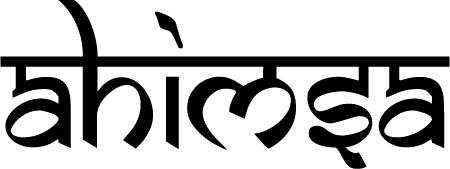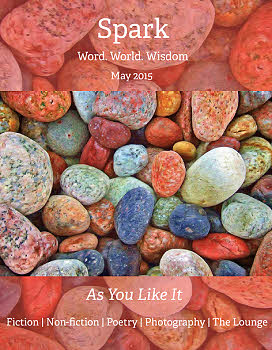It was one of the first days of spring. It was actually much too hot for an early spring day. The schools were closed for a fortnight and the local council had organised a host of workshops for children, by the river under make-shift awnings. The Parramatta River was a sheet of beaten silver, twinkling with thousands of diamonds where it caught the glorious yellow sunlight. My huge straw hat was a nuisance, flopping; a droopy banana leaf over my shoulders. But it kept out the sun and acquaintances. My face was hidden till my chin and so was my view. I had to raise my chin to peer through the dense foliage of my hat’s sides. I am sure I appeared haughty and distant. Shopping totes, library bag and purse weighed down both my hands, so unless I raised my chin to avoid the low hanging rim of my hat, I couldn’t see who or what was ahead.
By the time we had walked from our apartment to the river side, I thought it was the miracle of the Mahanavami that we hadn’t had any accidents. I was taking my son and his two friends to the riverside so they could hear a demonstrative lecture arranged by the city council on sea life. There was a touch tank that they were terribly excited about. Yet, I was on the precipice of a particularly volatile day for me. This was instigated either by the sense of foreboding that precedes the monthly periods along with heaviness of the mammary glands, bloated abdomen and general bitchiness of soul or the pangs of homesickness that rent the heart of every non-resident Indian on every festive day of the calendar. The Mahanavami morning brought memories of multiple Navaratris. Straw pandals, the Goddess’s trident, her beautiful eyes angry, evocative of feminist ideals, the blare of conch shells, beating of brass gongs as dusk is illuminated by a million earthen lamps in eastern India. The atmosphere thick with adrenaline and euphoria.
The morning had begun dreary Picturing the way my mother would make Kesari, I had mimicked her actions at the frying pan, in a bid to make the sweet as an offering to the Gods on the auspicious day. The semolina wouldn’t fry the same, the cashews were almost burnt, and the water had already become tepid. My fingers trembled. The smell of the burnt semolina rose up the kitchen.
“Mom, that’s the kesari?” my son sniffed and wrinkled his little nose in disgust.
My hormone-fuelled temper was on the boil. The deities in the make-shift platform on the dining table definitely deserved at least a decent prayer ritual now.
“It’s fine. Will you please switch the game off now? Come do the puja with me.”
“But mom, you haven’t finished cooking the sweet. Have you? And I want to go to the show with Ajay.”
“Let’s see! Today is the puja. Just switch off the game and come here.”
The tepid water and burnt semolina had come together as a lumpy colourless mass, and I could see the crystallised sugar at places. The volcano that was my inner being erupted now. I was a bull in the ring that had just seen an awful lot of red. I thrust the pan in front of the deity and as my bewildered son watched I poured forth my anger, guilt, homesickness as my offering to the Gods in an agitated, tumultuous snip-snap ritual. The yellowed turmeric and ghee soaked rice, the pretty first flowers of Spring, the paste made from months-old sandal blocks carefully wrapped in plastic sheets, kumkum all went up in a beautiful piñata-burst in a trajectory towards the images of the Gods. The acidic sweet, the miniature puja and my vitriolic burst had now evacuated my body of all energy. There was an immense void now. I felt listless and small. I felt like a big balloon, an envelope around the shrivelled ego the size of a pea. There was no body, just a flat line, and a dot, with a floaty, diaphanous periphery.
Now at the river side, I watched from under my giant canopy as the children played. Gay, like blobs of bright primary colours on a white canvas. I still felt raw and crossed my legs hoping to hide myself. Only then I remembered the biography on Gandhi that I had brought along to return to the city library as it was overdue. I hadn’t read a page from it, as there was never a minute’s refrain in the last ten days. The days had gone by with Navaratri bustle, saris taken out from between moth balls and old jewels kept enveloped in between documents in obscure drawers, decking up the deities, vacuuming, re-vacuuming the home every afternoon, frying and baking quantities of sweets and cookies, soaking, boiling and frying up beans for the evening prasad. Collecting myself, I consciously picked up the slim volume. The portrait of the much wrinkled, kind face on the cover once again covered me in the strongest wave of nostalgia. I felt as though I had let him down. I had been a beast that morning. How did he do it, the Mahatma? A sudden scrape of the metal bench made my nerves jump and crawl. It was another one of those office-goers out for their lunch by the river, a tall brunette with dark eyes.
“Sorry, didn’t mean to disturb.” She smiled a friendly apology.
“S’ok”, I hurriedly whispered and nodded my head and turned back to my book. With the turn of my head, I saw, “a-him-sa- non-violence” printed in bright pink on the side of her small black bag.
I got back to my book.. The children were now at the bicycle camp, donning their little helmets, their t-shirts sticking to their wet-backs, rivulets of sweat running down their faces like long side burns.
“Interesting?”
I turned around surprised. My senses were still out on the ballooned envelope. I just heard puffed, wind-swept whispers in place of voices.
“What you are reading, is it interesting?” she was persistent. I didn’t usually talk to strangers, unlike my brother who could just start having heart-to hearts with every barista in every Starbucks.
This woman across the bench was handsome, dressed in white. Her long neck gracefully ended in a well-built body. Her accent told me she was British.
“Sorry, I didn’t mean to disturb.” I realised I hadn’t talked, but had been staring. Did she think I didn’t speak English? My ego finally kicked in. I flushed and then said,
“No, that’s all right.”
I held the book up; I felt a burst of pride for god knows what. Like an idiot I pointed to her bag, at the words and said, “It’s Gandhi’s.” She bent down to look at the letters printed on the side of her bag and looked up puzzled.
I now hastened to clarify, still pointing to the bag. “Um, that’s a concept you see, propounded by Gandhi.” Propounded? I was puzzled by my stiff choice of word; my subconscious was for some reason churning up the hypocritical me. “Non-violence, like the bag says, he developed that principle, taught my countrymen to uh, you know, when he uh,” there my enthusiasm floundered; the ballooned self was now too far off to feel any sort of self-intimacy.
“Ah yes!” reckoning finally dawned on her face, her eyes looked down.
She smiled a brilliant smile. She pointed to herself with her long fingers, “Yes, Gandhi helped get rid of us.” She gave out a throaty chuckle.
I shrugged my shoulders, waved my fingers. Something, and anything to move away from this. “It’s his birthday today,” I declared triumphant. There, something cheerful.
“Oh is it? That’s nice.”
I was ready to turn around again and read on if she would let me.
“I am sorry for what we did, you know all those years back.” She looked at me with earnestness. What was this? Who was she?
What does one say to that? “ Oh I guess that’s alright,” I said, struggling with my thoughts, “ it’s been a really long time you know, around 60-65 years since, kids my generation don’t really think about all that these days, we don’t know the value of all that, we have…”
“Taken it all for granted…” there she completed my sentence. I was rambling, not really meaning what I was saying, not even conscious of what I said. She looked guilty for the crimes of her country men.
“My husband’s grandfather was a freedom fighter,” I threw in for what it was worth. Somehow it came up swimming afloat in the whirlpool of thoughts.
“Oh!” there was a surprised pause. She said, “Must be great having someone like that in the family!”
I felt hollow as though I had betrayed the sanctity of my husband’s grandpa, Jagan. The pain any of us felt on the subject was taught, carefully constructed by writers. There was just one photograph of him: a grainy black and white, which showed a tall, strong, bespectacled man. “He was a disciplinarian”, “loved his mother” we heard. There was even the incredulous “He played bridge, owned a car, a Rolex!” What drove this affluent man to drop everything and join the struggle for freedom? What made me take his name that day? How did it matter to that lone Brit by the river with her “ahimsa” bag? Somehow, saying that I was married to his grandson made me associate myself with the idea that was India, something to fight for, to die for, more a concept than a country.
I must have been silent for a while.
“Was fun talking to you, hope I bump into you again soon,” she smiled, gathered her things and left.
The hot pink lettering “a-him-sa” caught my eye for a while as it bumped up and down.







Brilliant !! Powerful emotions…beautifully encapsulated !